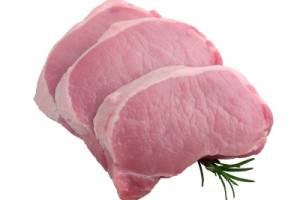Research to highlight value of organic pork

Researchers from Aarhus University focus on meat and ethical quality in a research project which is to highlight the potentials and possibilities of free-range pig farming.
In a new research project, researchers from Aarhus University are focusing on organic pork, which continues to have a low market share in Denmark.
With a market share of about one percent there is a large potential for increasing sales of organic pork on the Danish market.
While consumers have accepted organic eggs and milk, organic meat (including pork) is still a hard sell, as researcher Anne Grete Kongsted from Aarhus University has focused on in the research project SUMMER.
The project includes pork, beef and chicken meat and its primary objective is to improve the quality of organic meat – not only in respect to eating quality with a focus on tenderness and taste, but also the ethical quality, which the consumers should be made aware of in order to understand the higher price tag on organic meat.
In her experiments, Anne Grete Kongsted examines whether free-range pigs are capable of finding their own food by foraging in the fields. This is to help strengthen the organic profile of the meat, as the pigs thus adhere more to their natural behaviour. This is in contrast to the current practice where organic pigs are fed with cereals and soya and fattened indoors with access to small runs. The experiment will look into potentially reduced feed costs and a reduced environmental impact, as there is a lower input of nitrogen from supplementary feed if the pigs find some of their own food in the fields by foraging.
“ In the experiment we take a closer look at how much the pigs obtain from the soil surface in the shape of grasses and other plant materials, but also how much they obtain from under the surface in the shape of roots, earthworms and other soil organisms,” she explains.
Seventy-two pigs divided into 18 paddocks at AU Foulum are part of the experiment. Two breed combinations are compared, including the old Irish Tamworth breed, which has been chosen because it is known to be a very eager grazer. In addition, the experiment includes different feeding strategies.
“We feed some of the pigs according to ‘normal’ practice. We don’t expect these pigs to obtain much food from the fields, because previous experiments have shown that, if the pigs are fed according to recommendations, or ad libitum, then they simply can’t be bothered going out into the field to root around. Therefore we are utilising two other feeding strategies where the pigs are fed very restrictively. In the beginning the pigs get 80 percent of the normal amount and later as little as 60 percent,” says Kongsted.
Kongsted expects that the pigs in the study can obtain about 20 percent of their daily energy need through foraging.
In the experiment, researchers will be able to measure the nutritional value of foraging and determine how foraging and breed affects the meat quality, robustness and productivity.
**Further information: Researcher Anne Grete Kongsted, Department of Agroecology, Telephone: +45 8715 7993
email: anneg.kongsted@agrsci.dk
The project which is an RDD project coordinated by ICROFS has its own website.
Source: Aarhus University







